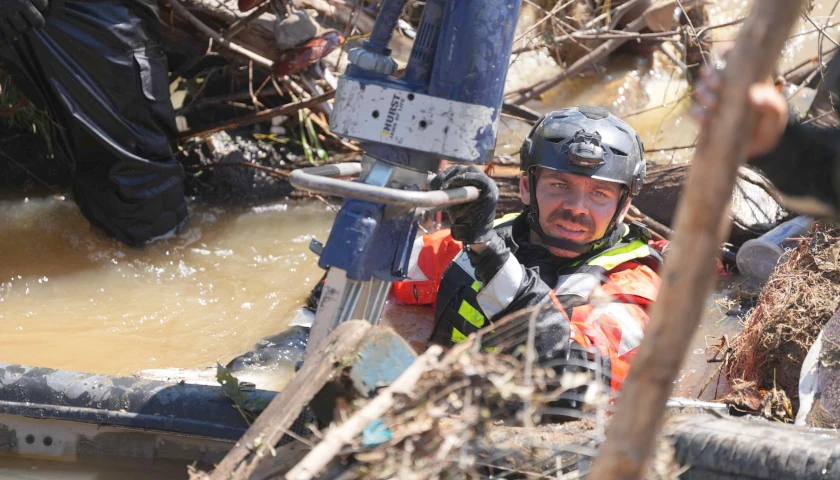Questions persist about the $58.7 million dollar fund tied to the Atlantic Coast pipeline permit process and the North Carolina Governor’s office.
Over a year has passed since the fund’s existence was made public. Questions from lawmakers and the media have gone largely unanswered by North Carolina’s Democratic Governor Roy Cooper.
The latest question being asked about this fund comes from Dan Way, a staff writer at Carolina Journal:
If Gov. Roy Cooper felt so strongly he had legal authority to create the unusual $57.8 million Atlantic Coast Pipeline mitigation fund, then why didn’t he sue to prevent the General Assembly from commandeering the money?
“That’s a good question. I don’t know,” said Pat Ryan, spokesman for Senate leader Phil Berger, R-Rockingham. “Maybe [the governor and his staff] didn’t think they had a strong enough case.”
What is this multi-million dollar fund all about?
In 2017, officials involved with the Atlantic Coast Pipeline project and the Cooper administrations engineered an agreement that include monies to be directly controlled by Cooper.
The payment information in the amount of $57.8 million was couched in a memorandum of understanding (MOU) and expressly states the funds would be deposited into the bank of Cooper’s choice.
The MOU and the required approved regulatory permit from the North Carolina Department of Environmental Quality were announced separately, but on the same day.
Not long after the announcement of the permit and the MOU, State Rep. Pricey Harrison (D-Guilford) let it slip that the $57.8 million was “a condition of getting the permit granted.”
Speculation and accusations of a pay-to-play scenario followed.
The $57.8 million is called a slush fund by some, while Cooper and his staff term it as a “mitigation fund.”
Cooper’s office originally called the nearly $58 million fund a “voluntary contribution” and a spokesman for the Cooper administration characterized the money as “negotiations.”
The MOU gave Cooper control over money and future expenditures that the State Legislature should have been in control of. In response, the Legislature took the money off of Cooper’s plate with the passing of House Bill 90. The bill divides up Cooper’s $57.8 million between the school districts that will likely be impacted by the pipeline.
The North Carolina Legislature then also created a pipeline committee and held a hearing on the pipeline matter where lawmakers pressed representatives from Cooper’s office for answers.
A list of questions compiled by lawmakers was sent to the governor, most of which have remained unanswered.
.@Sadieweiner it’s been 74 days since the #NCGA last sent questions about the ACP permit process and still no response from @RoyCooperNC. As a Dem sen on the committee said “The questions which have been asked I would like to see addressed and I would like to see answered.”#ncpol
— Senator Berger Press Shop (@SenBergerPress) November 20, 2018
Frustrated by the lack of communication and transparency from Cooper, lawmakers convened last November and authorized the hiring of outside investigators.
Likely in response to the new investigators poking around, Cooper’s office dumped nearly 20,000 of documents right before Christmas.
The documents released by the governor’s office are a combination of media record requests and a request from the Legislature. The records request by the Legislature is dated February 9, 2018. The document dump took place on or around December 21.
One email in the document release shows Cooper’s top aide Ken Eudy mocking former Governor Pat McCrory for questioning the pipeline fund. Another shows that the original amount of the MOU was $80 million.
Original MOU had an $80 million figure?#ncpol #ncga #PipelineSlushfund pic.twitter.com/zxCJtljE56
— A.P. Dillon (@APDillon_) December 21, 2018
There has been no comment from Cooper’s office since the documents were released.
The Legislature’s committee on the pipeline is expected to reconvene in the upcoming months.
Read all the questions to Gov. Cooper here.
[pdf-embedder url=”http://battlegroundstatenews.com/wp-content/uploads/2019/01/Subcommittee-Ltr_Cooper_-9.7.18.pdf” title=”Subcommittee Ltr_Cooper_ 9.7.18″]
– – –
A.P. Dillion is a reporter at Battleground State News.






[…] crux of the ongoing controversy involves a hefty $58.7 million dollar fund negotiated by the Cooper administration which appeared to be tied to granting the necessary permit […]